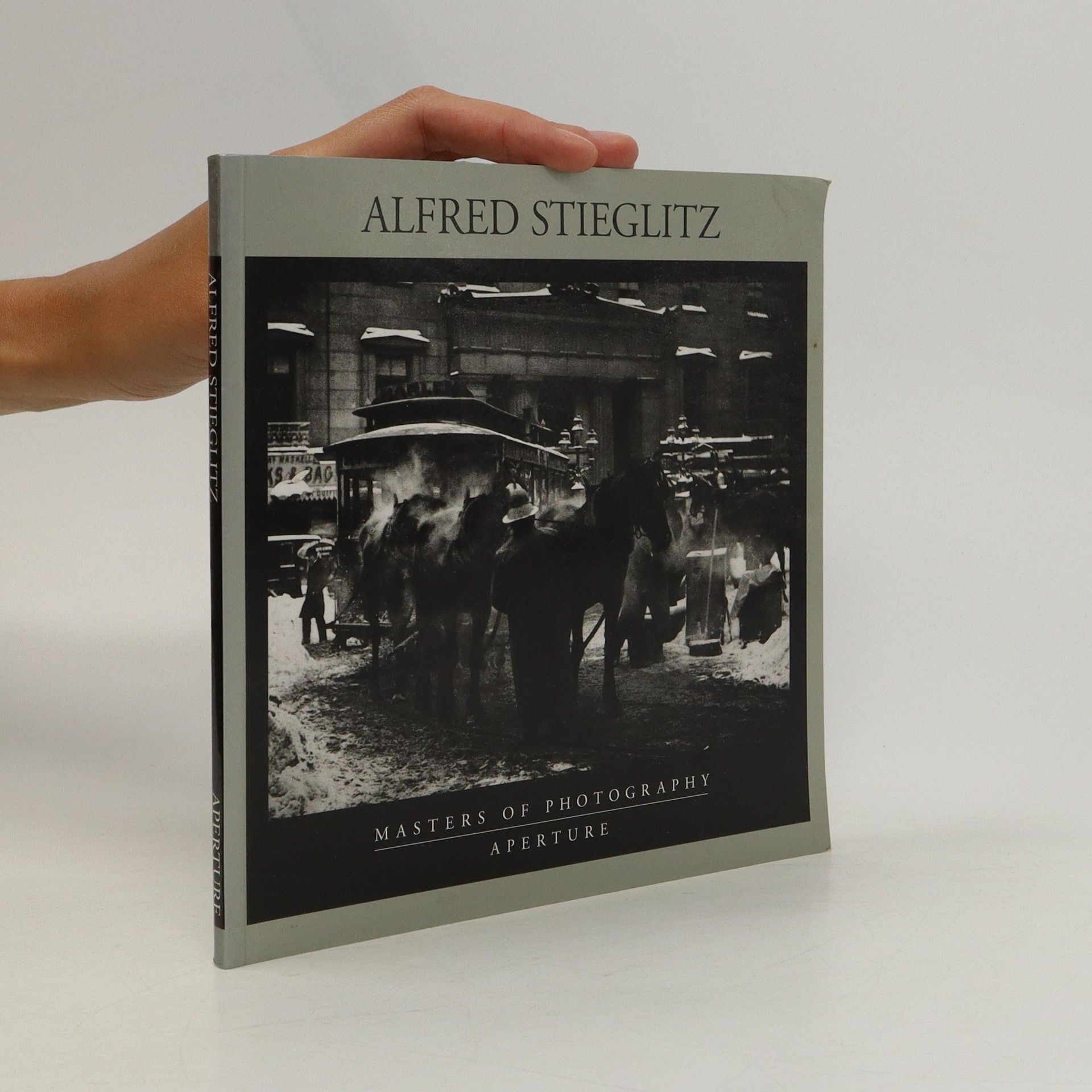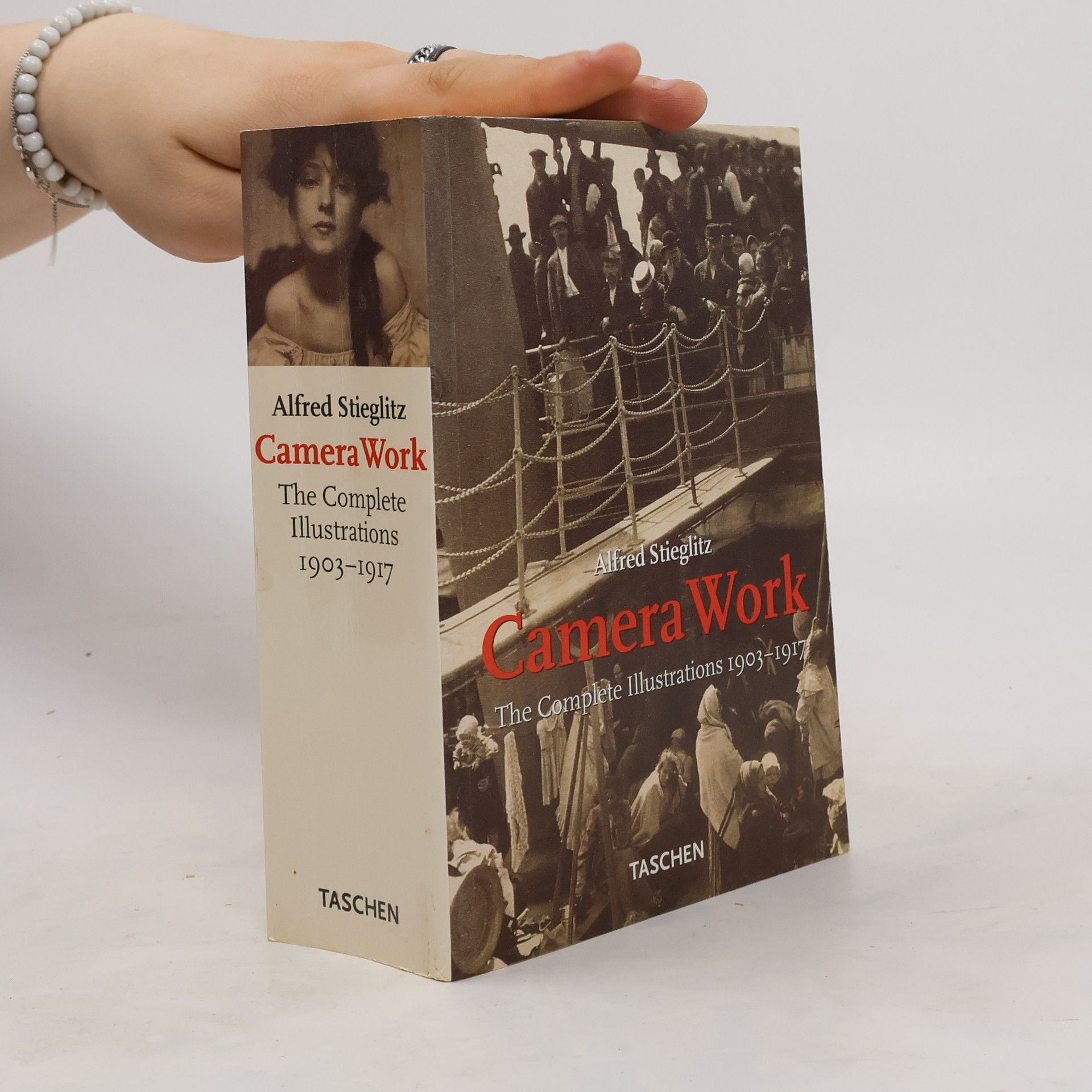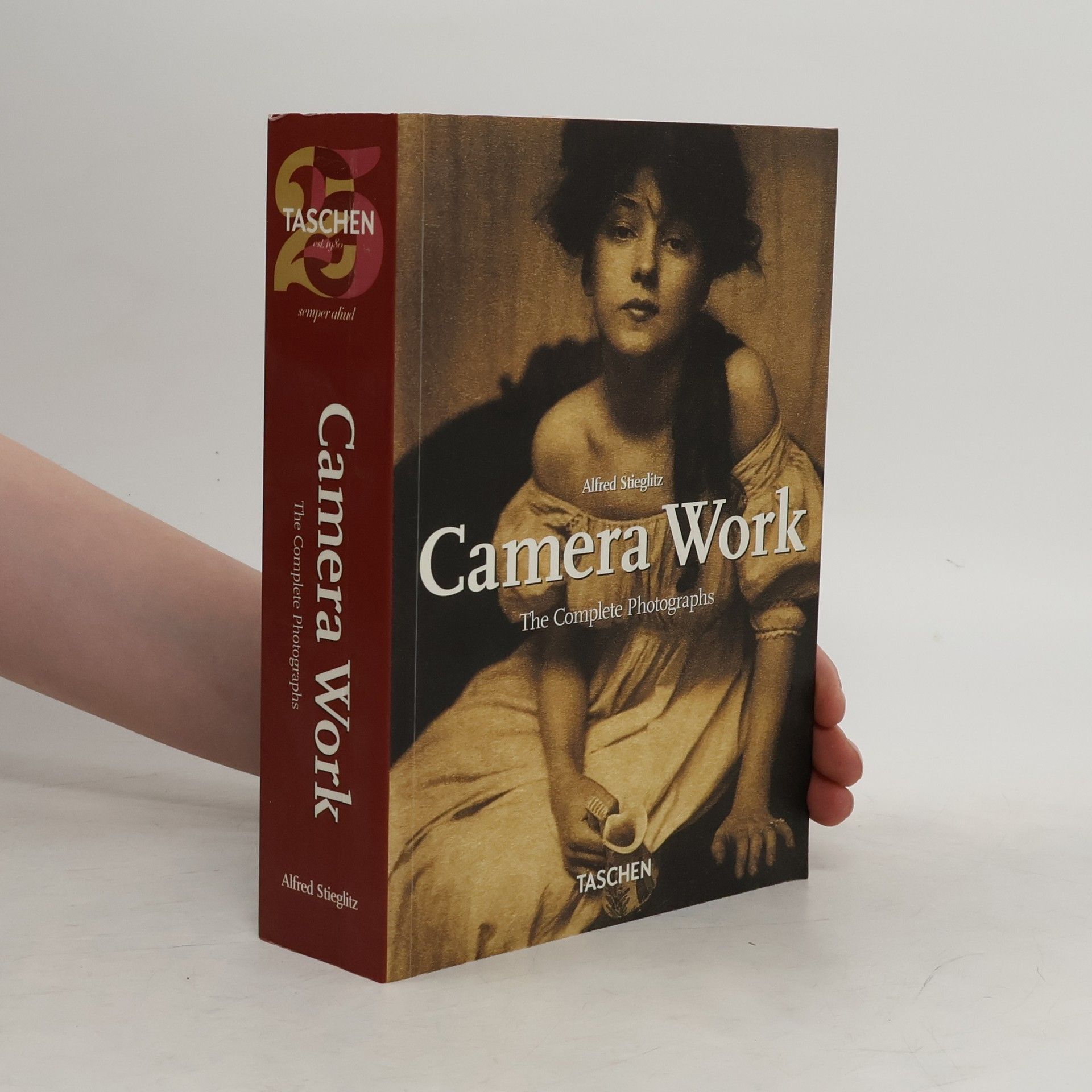Camera Work was a first journal photo whose focus was on visual, rather than technical. This book brings together a selection from the journal’s 50 issues.
Alfred Stieglitz Books
Alfred Stieglitz was a pivotal American photographer and modern art promoter who spent fifty years making photography a respected art form. Beyond his own lens work, Stieglitz was renowned for his New York galleries in the early 20th century, where he introduced many avant-garde European artists to the U.S. His legacy lies in his dedication to elevating photography and his role in shaping American modern art.






This collection of half-tone and photogravure reproductions from all 50 issues of the legendary photographic magazine produced by Stieglitz contains the work of Eduard Steichen, Frank Eugene, Clarence H. White, & others, as well as Stieglitz's own photography and original essays. Intro in English, German, French.
Returning to print after fifteen years, a high-quality collection of seventy-three images from the career of the pioneering photographer features portraits of artist Georgia O'Keeffe and early twentieth-century New York City. 10,000 first printing.
Alfred Stieglitz (Aperture Masters of Photography, No 6)
- 96 pages
- 4 hours of reading
"[Stieglitz's] photographs of things and people-of sun and cloud shapes-become equivalents of a deeply critical yet affirmative inquiry into contemporary life. They are the objective and beautiful conclusions of that imagery" - Paul Strand
My Faraway One
Selected Letters of Georgia O'Keeffe and Alfred Stieglitz: 1915-1933
- 832 pages
- 30 hours of reading
Few couples in 20th-century American art and culture are as significant as Georgia O'Keeffe and Alfred Stieglitz. From 1915 to 1946, they exchanged over 5,000 letters (more than 25,000 pages) detailing their lives. This volume presents around 650 carefully selected and annotated letters by photography scholar Sarah Greenough. The correspondence captures their initial romance in the 1910s, their life together in the 1920s, the strain on their relationship during the early Depression years, and its revival in the late 1930s and early 1940s. Their distinct writing styles—O'Keeffe's sparse vibrancy and Stieglitz's fervent lyricism—offer insights into their creative evolution and friendships with influential figures in early American modernism, such as Charles Demuth, Arthur Dove, and Paul Strand. The letters also highlight their interactions with key personalities in American and European art and culture, including Duncan Phillips, Diego Rivera, and Marcel Duchamp. Additionally, their poignant prose reflects the broader cultural influences of World Wars I and II, the 1920s economic boom, and the 1930s Depression on their lives as articulate, creative individuals.
"""Les photographies (que prend Stieglitz) des choses et des personnes - du soleil et de la forme des nuageséquivalent à un questionnement de la vie contemporaine, profondément critique mais affirmatif. Elles sont les conclusions, belles et objectives, de ce questionnement."" Paul Strand."
